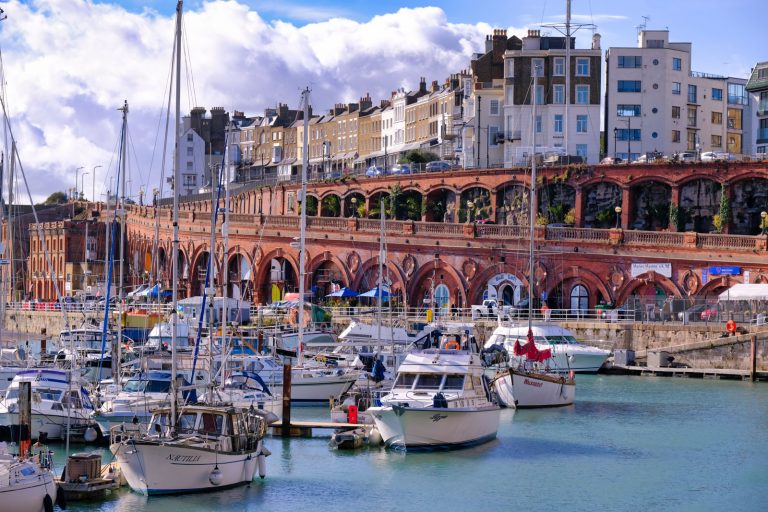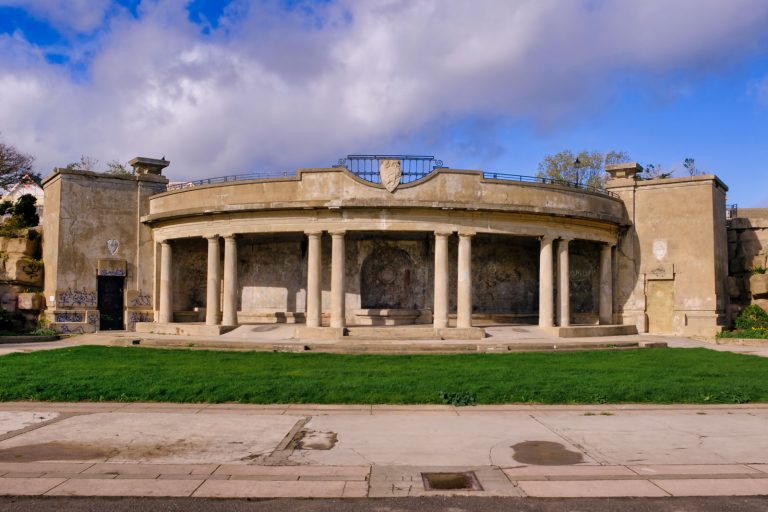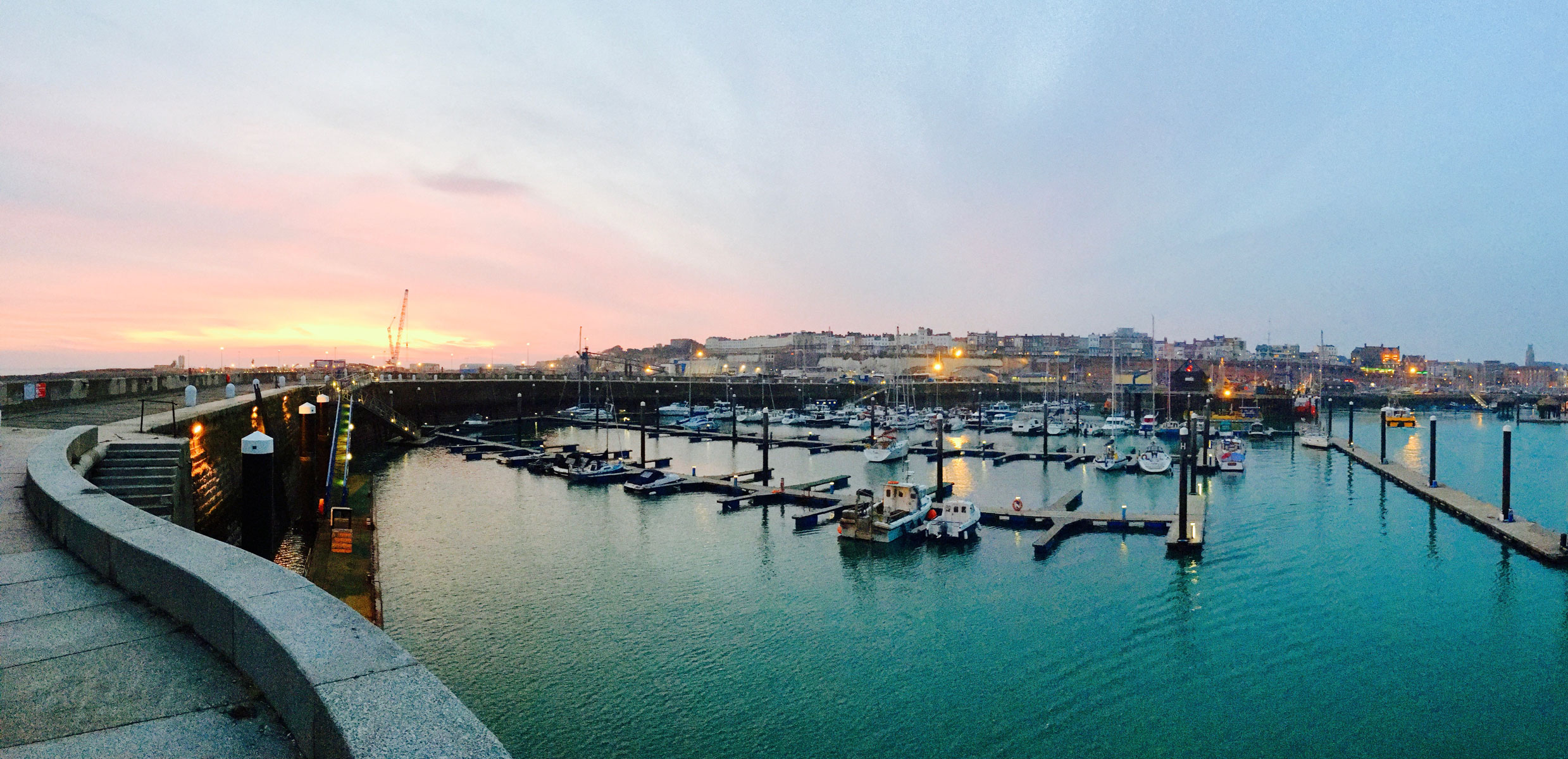
Ramsgate is a seaside town in the district of Thanet in east Kent, England. It was one of the great English seaside towns of the 19th century. It has a population of about 40,000 and it’s main industries are tourism, fishing, off shore wind farms and the creative sector.
Ramsgate’s history, and its impact on modern British life is staggering.

Ramsgate was the site of four of the most important arrivals in English history: Julius Caesar in 54BC built a 20 ha fort during his incursion, Hengist and Horsa in 449 AD, who led the English in their conquest of Britain; and Augustine of Canterbury in 597 AD, who converted the English to Christianity.
More recently, the 850 Little Ships of Dunkirk were sailed from Ramsgate in England to Dunkirk in France between 26 May and 4 June 1940 as part of Operation Dynamo, helping to return home with more than 336,000 British and French soldiers who were trapped on the beaches at Dunkirk during the Second World War.

Home to the UK’s only Royal Harbour, Ramsgate was also a chief embarkation point during the Napoleonic Wars.
Situated in the district of Thanet, Ramsgate is now experiencing an influx of visitors of a different kind as one of the fastest growing tourism destinations in the UK, attracted by award winning sandy beaches, stunning architecture, big blue skies, a thriving creative tourisms sector and one of the largest marinas on the English south coast.
In contrast, Ramsgate also has some of the most deprived areas in the UK.

The map shows the relative deprivation in the Ramsgate locality. Five out of the seven wards have LSOAs which are the most deprived quintile in Kent.
The Ramsgate locality has 9 of the 88 most deprived LSOAs in Kent
Employment rates have fluctuated rapidly over recent years, ranging from 69% in 2015, 80% in 2017, and 71% in 2018. Wages are typically lower than the UK average, and youth unemployment is higher than the SE and UK average.
